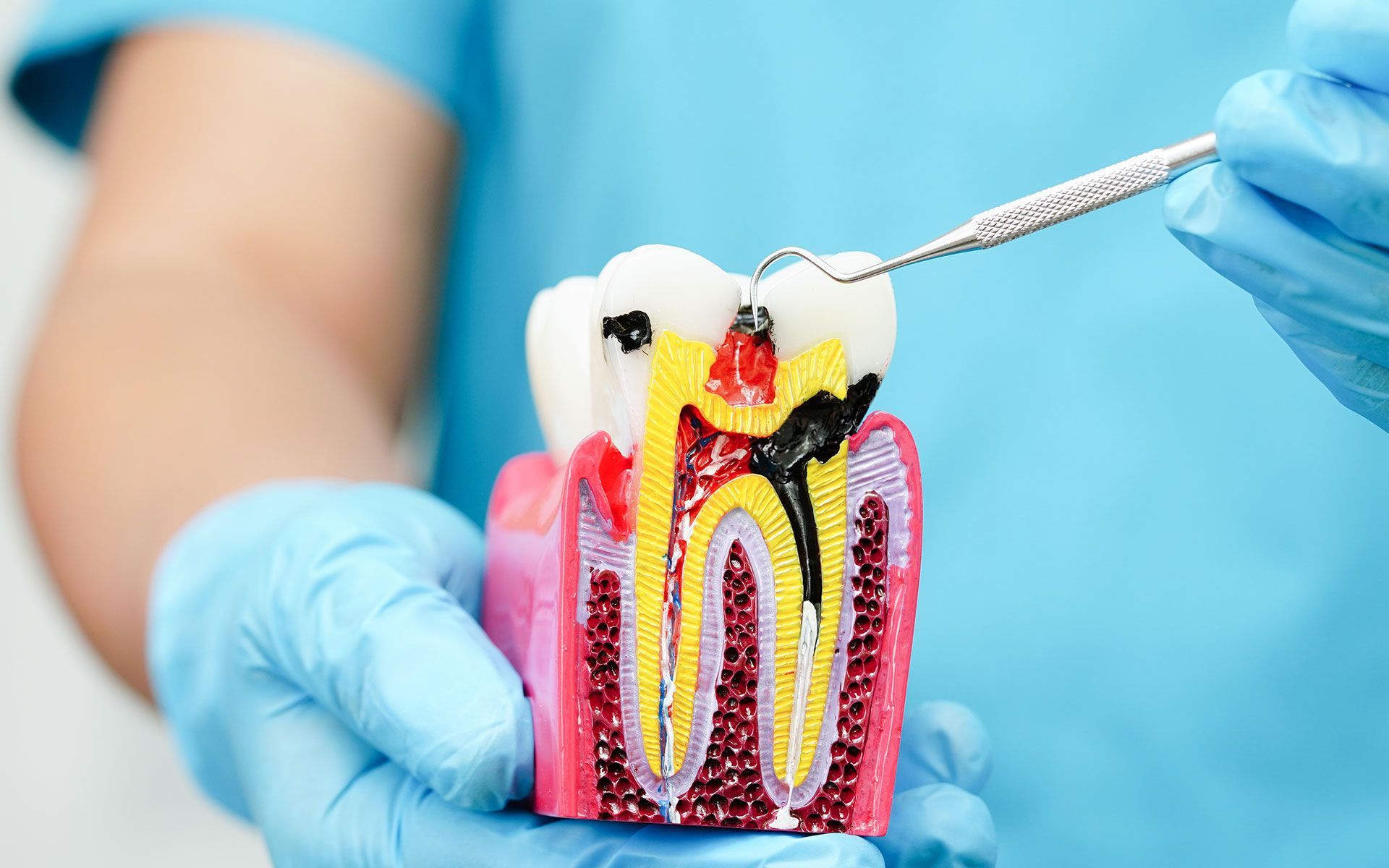Root Canals & Endodontics in Smithtown, NY
Root canal therapy is a specialized dental treatment designed to save and restore teeth affected by infection or severe internal damage. At Norman M. Rubin, DDS in Smithtown, NY, we provide comprehensive endodontic care focused on preserving natural teeth, relieving pain, and preventing further oral health complications. Root canal procedures are performed using modern techniques to ensure safety, comfort, and long-lasting results.
When Root Canal Treatment Is Necessary
Root canal therapy is recommended when the inner pulp of a tooth becomes infected, inflamed, or injured. The pulp contains nerves, blood vessels, and connective tissue that support the tooth during its development. While the pulp is essential in early tooth growth, a fully developed tooth can function normally without it once removed.
Infections of the pulp are most commonly caused by untreated tooth decay, deep cavities, or trauma that results in cracks or fractures. Symptoms indicating the need for a root canal may include prolonged sensitivity to temperature, throbbing pain, gum swelling, discoloration of the tooth, or the presence of an abscess.
Delaying treatment can lead to worsening infection, damage to surrounding bone, and eventual tooth loss. Root canal therapy eliminates the source of infection while retaining the natural structure of the tooth.
How Root Canal Therapy Works
Root canal procedures are performed under local anesthesia to ensure a pain-free experience. After isolating the affected tooth, an access opening is created in the crown to reach the infected pulp chamber and root canals. Using precision instruments, the damaged tissue is removed from within the tooth, and the canals are meticulously cleaned, shaped, and disinfected.
Once the internal canals are fully prepared, they are filled with a biocompatible material—usually gutta-percha—to seal the space and prevent reinfection. The tooth is then temporarily sealed until a final restoration, such as a dental crown, is placed during a follow-up visit.
The restored tooth remains functional and, with proper care, can last as long as a natural, untreated tooth.
Post-Treatment Restoration and Care
Following root canal treatment, the tooth must be restored to protect its structure and function. A dental crown is often recommended to reinforce the tooth, especially if it is a molar or has lost a significant portion of its structure. The crown restores the shape, strength, and appearance of the treated tooth, allowing it to withstand normal chewing forces.
At our Smithtown, NY practice, custom crowns are designed to match the natural shade and contour of your other teeth, ensuring a seamless appearance. Once the crown is placed, patients are advised to maintain regular dental check-ups and continue daily oral hygiene routines to protect the restored tooth.
Endodontic Retreatment for Failing Root Canals
In some cases, a previously treated tooth may develop new symptoms or fail to heal properly. This can occur due to hidden canals, delayed crown placement, or new fractures in the tooth. When this happens, endodontic retreatment may be necessary to correct the issue and preserve the tooth.
Retreatment involves reopening the tooth, removing the original filling material, and carefully inspecting and re-cleaning the canals. After addressing any missed anatomy or reinfection, the canals are re-filled, and the tooth is sealed and restored.
Our diagnostic tools and endodontic expertise allow us to identify the causes of retreatment failure and plan a targeted approach for resolution.
Addressing Dental Pain and Emergencies
Root canal procedures are often performed in response to dental emergencies involving severe pain or swelling. When pulp infection leads to abscess formation, prompt endodontic intervention is required to prevent the spread of infection to surrounding tissues and bone.
At Norman M. Rubin, DDS in Smithtown, NY, we offer prompt care for patients experiencing acute dental pain. Early diagnosis and root canal therapy not only alleviate symptoms but also help preserve the integrity of the tooth and the surrounding oral structures.
Patients who experience sudden pain, swelling, or a visible abscess are encouraged to contact our office for a same-day evaluation whenever possible.
Diagnostic Precision in Endodontics
Accurate diagnosis is essential for successful root canal treatment. Our office uses digital radiography and advanced imaging to assess the internal condition of teeth and surrounding bone. This technology helps visualize root structures, detect abscesses, and identify any anomalies that could affect treatment planning.
Clinical testing, such as percussion, cold sensitivity, and bite response, also play a role in determining the extent of pulp damage. Combined with imaging, these tests provide a comprehensive view of the tooth’s condition and inform the most appropriate course of action.

